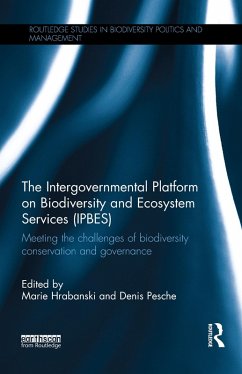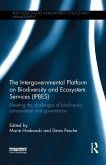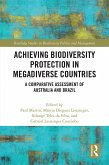The book reveals that, through its conceptual framework, IPBES promotes a pluralistic view of nature that calls for a broadening of the disciplinary frontiers. It combines natural science and social science research and also includes indigenous and local knowledge. IPBES is considered to represent the institutionalization of a permanent knowledge assessment on biodiversity and is often referred to as an IPCC success story, constituting a new stage in global environmental governance. In analyzing the knowledge selection process for IPBES decision making, the book better situates IPBES within the biodiversity and global governance domain. It ultimately argues that the establishment of IPBES provides a new opportunity to coordinate the different international conventions (CBD, RAMSAR, CITES, etc.) and initiatives (international assessment of marine biology, scientific programs, funding, etc.).
Dieser Download kann aus rechtlichen Gründen nur mit Rechnungsadresse in A, B, BG, CY, CZ, D, DK, EW, E, FIN, F, GR, HR, H, IRL, I, LT, L, LR, M, NL, PL, P, R, S, SLO, SK ausgeliefert werden.









